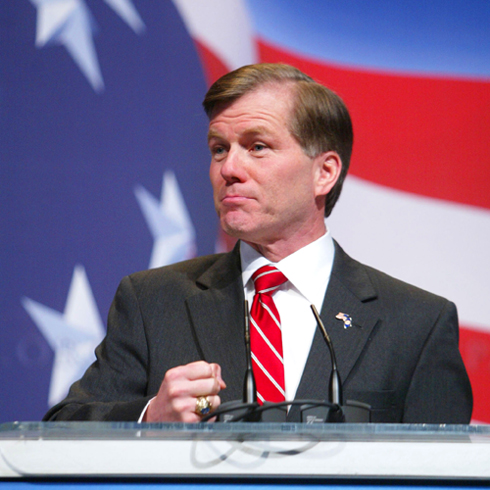Gov. Bob McDonnell (R-VA) is not taking a position on the idea of nullification — the notion that a state can unilaterally override a federal law (and a notion that has been consistently rejected in federal courts).
The Roanoke Times reports on McDonnell’s appearance at a town hall meeting on Wednesday:
He also fielded questions about how to deal with the problems of illegal immigration, the influence of lobbyists, losses in education funding, the placement of electricity-generating windmills and the constitutional question of “nullification.”
While complimenting the questioner on his knowledge of the Constitution, McDonnell declined to say whether he backed that notion, a legal argument that a state may invalidate or nullify a federal law it believes violates the 10th Amendment’s delegation to the states or the people all rights not designated to the federal government.
Virginia Attorney General Ken Cuccinelli (R) has filed a lawsuit against the federal government, with McDonnell’s support, seeking to have the new federal health care law overturned. It should be pointed out that this method is the traditionally accepted mechanism for a state to challenge the federal government, and is far short of the far more radical idea of nullification.
Theories of nullification were often floated during the first several decades of the United States, by individual states having disputes with the federal government over issues ranging from slavery to tariffs. However, federal supremacy was finally established by the Civil War and the Northern victory over the South’s attempted secession. Nullification was later invoked by Southern segregationists during the Civil Rights movement, and was consistently rejected in federal courts.
Recently, though, nullification has made a bit of a comeback among some elements of the Tea Party movement, and has even reached all the way to Minnesota, where presumptive Republican gubernatorial nominee Tom Emmer is a staunch proponent of it.






